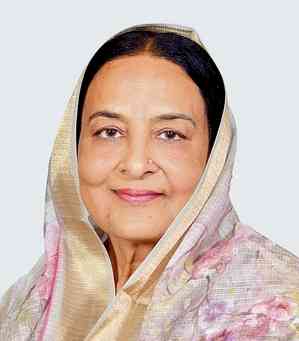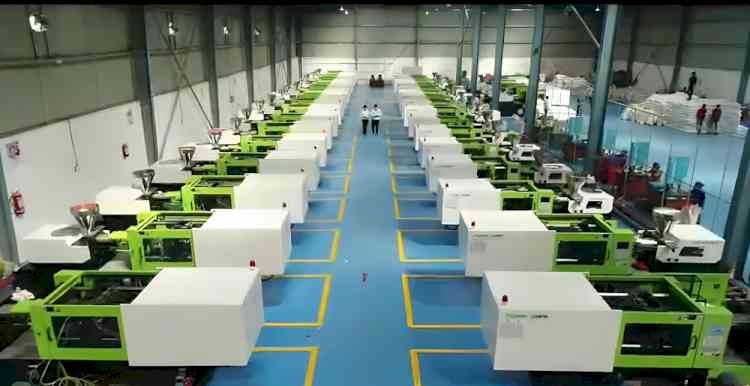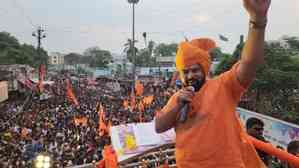Time capsule by LPU to mark the Indian Science Congress
Author(s): City Air News Nobel laureate in Chemistry Prof Avram Hershko, Nobel laureate in Physicist Frederick Duncan Michael Haldane & LPU Chancellor Mr Ashok Mittal interred the Time Capsule in earth at LPU Campus LPU Chancellor Mr Ashok...

Three Nobel Laureates bury the Time Capsule on LPU campus to preserve it for 100 years
Phagwara, January 4, 2019: A Time Capsule with 100 items representing a cross-section of today’s technology and India’s scientific prowess was buried today at the Lovely Professional University by three Nobel Laureates on the occasion of the on-going 106th Indian Science Congress.
The Time Capsule contains 100 items that represent modern-day technology as experienced in India. The Capsule, made by Lovely Professional University on the occasion of the 106th Indian Science Congress, being hosted on its campus, will remain buried for the next 100 years. The objective of the Capsule is to capture today’s technological essence for the future generations.
The Capsule was buried at a depth of 10 feet by no less than three distinguished Nobel Laureates- Hungary-born Israeli biochemist Avram Hershko, British-born American physicist F. Duncan M. Haldane and German-American biochemist Thomas Christian Südhof. These three Nobel Laureates are participating in the Indian Science Congress hosted by Lovely Professional University, Punjab.
The items that are part of the Time Capsule represent day-to-day technologies used in today’s India- landline telephone, smart phone, weighing machine, water pump, stop watch, headphones, handy-cam, and pen drive. The capsule will also preserve several scientific equipment like rheostat, refrectorscope and double microscope. Some other products that will be preserved include solar cell, a hard disk with latest documentaries and movies.
Chancellor of LPU, Ashok Mittal said, “Earlier, major developments would take place over a few decades while today new tech capabilities are being added to our lives every few years. The Time Capsule developed by us offers a representation of our technology know-how as it stands today. I am sure it will be a source of wonder and pride for the generation that digs this out in 2119.”
Over 25 students across departments such as Electronics, Mechanical, Fashion, Agriculture, Design, Computer were involved in building the Time Capsule. The items that have gone into the Capsule were selected basis an internal poll amongst students of Lovely Professional University.
Prof. Anil Sahasrabudhe initiated the Plenary Session on Academic Regulatory Bodies
Jalandhar, January 3, 2019: Prof. Anil Sahasrabudhe initiated the Plenary Session on Academic Regulatory Bodies where he introduced three major aspects of All India Council for Technical Education (AICTE) -regulation, accreditation and ranking of institutions.
He expressed with pride that the wide and robust network which AICTE caters includes various domains like engineering, technology, architecture, pharmacy, applied arts, hotel management and catering technology.
He educated the audience on the functions of regulatory body from Approval Process Handbook to start a new institutions and ensuring the required infrastructure like animal houses, laboratories, conducting workshops etc. to facilitate learning.
He shared valuable insights on various initiatives taken by AICTE that include- introduction of artificial intelligence, mission learning, data analytics, cloud computing; building teacher-student relationship; conducting faculty development programme; examination reforms to be taken; innovation cell to ensure 24*7 research facility; internship of science students to have field experience.
He emphasized that AICTE is not just a Regulatory body but also a Facilitator now. He recapitulated the session with its Focal Theme of “making our Education the best Education’ and ‘Science for All.”
Report on “Role of Defence Services in Current Scenarios”
Jalandhar, January 3, 2019: As we all know DRDO has been a torch bearerof the defence research and development in the country. It has been responsible for identifying critical technologies, working out modalities for technology development and identifying partners for technology acquisition Keeping this in view a on the First day of 106th ISC, Plenary Session on ‘Role of Defence Services in current scenarios’ was held in Shanti Devi Mittal Auditorium of LPU.
This session was graced by the presence of honourable Chairman of DRDO , Dr G Satheesh Reddy; Director General of Naval systems and Materials, DRDO, Dr Samir V Kamt and Dr. AK Singh, Director General (Life Sciences), Chancellor LPU Mr Ashok Mittal, Professor Monica Gulati, and Mr Guru Prasad, Director General of DRDO. A warm welcome was given to the dignitaries. Keynote Speaker of the Session was Dr G Satheesh Reddy. Other speakers were Dr Samir V Kamat and Dr AK Singh.
Dr Reddy, famously known as, “Rocking Man of Country” gave the introduction of DRDO. He talked about achievements in making Missiles like Agni ,Akaash etc. He informed about the contest “Dare to dream” which was initiated on 15th October,2018 , on the birth anniversary of A.P.J. Abdul Kalam to promote the researches. He talked about the 52 labs and 7500 scientists that are engaged in all type of researches in the defence area under DRDO. He confidently stated that “Now We are a well confident in our defence system”. He also stated that now “Manned systems are becoming unmanned system” so different types of changes are required to make the technology better.
Dr Samir V Kamat gave a presentation about “Materials Technologies for Future Defence Systems. He stated that Material technology underpins almost all defence systems and is a key enabler for improvement in performance. He laid emphasis on the need of a stealthy platform for all the weapons used for defence purpose. He also compared present usage of materials with future usage of materials.
He talked about Aero products materials , Naval hull materials and Hypersonic missiles.
He emphasised on the materials used for making modern weapons to be less expensive and to be strengthened enough.
In his speech on “Evolving Landscape in Life Sciences “ Dr A K Singh discussed the journey from “Man to Molecule”. He stated that now boundaries are no bar for discussing any of the technology. There is holistic approach to understand the technology.
He shared “some technologies of life sciences which make an effect and will make effect”.
There was interactive session also.
The session was very helpful to understand the need of major changes in the defense technologies as per the present scenario.
Professor Thomas C. Sudhof presented his lecture on his research
Jalandhar, January 3, 2019: Professor Thomas C. Sudhof presented his lecture on his research which was on Neurodegenerative conditions such as Alzheimers where the brain shrinks. He very nicely explained the complexity of the brain and stated “the relation of science to innovation is not direct for classical problems, it is indirect”. Further he said discoveries cannot be planned or engineered. All in all he shaded lights on how the science is an important factor in understanding and treating the diseases of brain.
Professor Avram Harshko who has won a nobel prize in Chemistry has made discovery of production of protein for the vascular diseases like cancer. He explained about the Ubiquitin- a protein that marks other protein for degradation. He pinpointed his lessons from his life in science thus far by saying it is very important to have a good mentor. In conclusion he said never leave benchwork, and you shall continue to get a lot of excitement and fun.

 cityairnews
cityairnews 



















